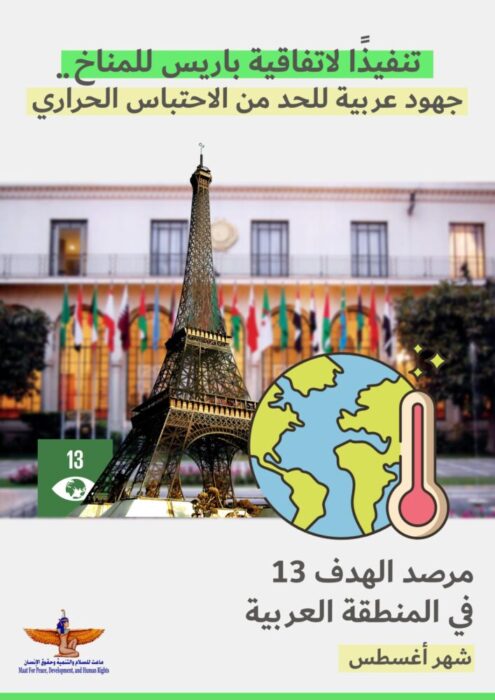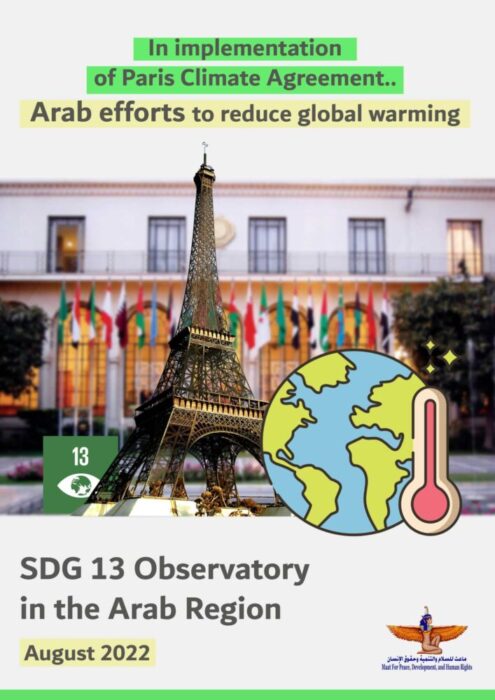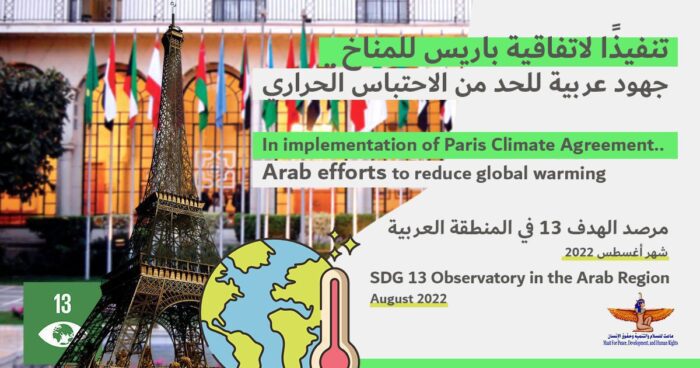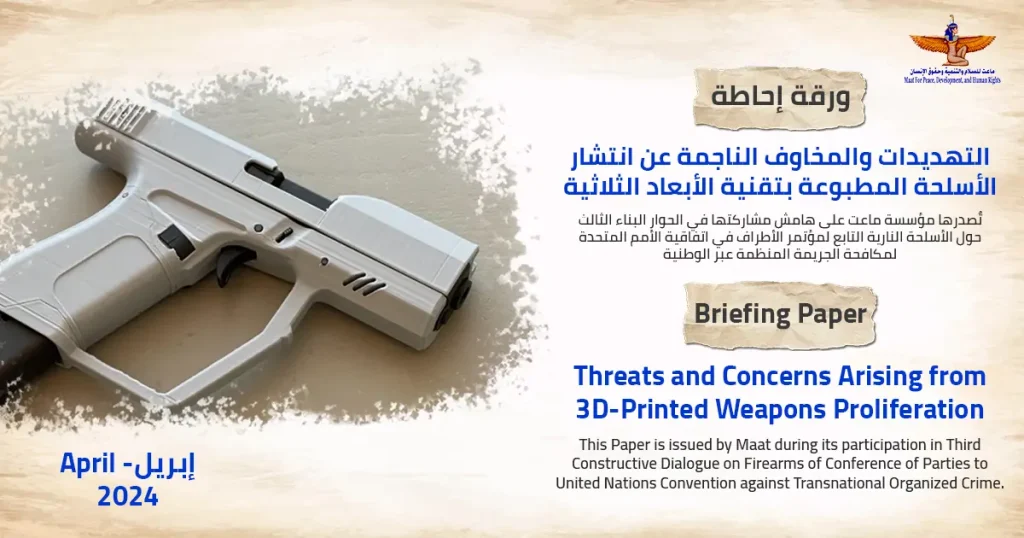Maat Releases its 8th Issue of the SDG Observatory in the Arab Region... Arab Efforts to Curb Global Warming
Okeil: We recommend the international community to intensify cooperation with Arab countries to save the communities most vulnerable to climate change repercussions
Mariam Salah: We recommend Arab countries to focus on solar energies to reduce climate change
Maat for Peace, Development and Human Rights released the 8th issue of the "SDG 13 Observatory in the Arab Region", which came this month under the title "Towards the Implementation of the Paris Agreement... Arab Efforts to Curb Global Warming."
The August issue of the Observatory indicated that global warming is one of the most significant challenges threatening Arab countries, and human activities are the main reason behind using heat-trapping gases or burning fossil fuels, as these gases lead to a rise in sea levels and a change in the number of organisms in land and sea.
And the country of this number was Bahrain, which has made great efforts to ensure its contribution to the protection of the environment and its resources, and has taken many measures aimed at reducing climate change, which by its nature will affect the reduction of air pollution, and reduce water and soil pollution. Maat confirmed in this issue that the Kingdom of Bahrain has integrated climate change goals into Bahrain's Economic Vision 2030 and the government's work program, and has appointed a special envoy for climate affairs. In addition to what it ratified from the Paris Agreement in December 2016.
Maat confirmed in this issue that the Kingdom of Bahrain has integrated climate change-related goals into its Economic Vision 2030 and the government's agenda, and has appointed a special envoy for climate affairs. In addition, it ratified the Paris Agreement in December 2016, which integrated the threats of climate change into national policies for all sectors, implemented renewable energy projects and adopted the best initiatives to achieve sustainable development goals, especially in the field of reducing carbon emissions.
The report presented a set of recommendations for the Arab countries to promote the thirteenth goal, the most prominent of which was a recommendation to Syria that it should return to the corridors of the League of Arab States and coordinate joint Arab cooperation towards confronting climate change and mitigating its effects, including benefiting from grants and joint projects that took place under the umbrella of the League to promote climate action.
As to the role of UN mechanisms in climate action, Maat stated that during the preparation for the COP27 Climate Conference, which will be held in Sharm El-Sheikh, several regional conferences were organized, the most recent of which was the Africa Climate Week (ACW) 2022, held from August 29 to September 2 in Libreville, Gabon, which engaged stakeholders to drive climate action across countries, societies and economies.
Commenting on this issue, Ayman Okeil, the international human rights expert and President of Maat, noted that vulnerable communities are the most affected by the repercussions of climate change, which means that thousands of families will, unfortunately, be left without protection, and cases of displacement will dramatically increase. The role played by UN mechanisms in this context has indeed encouraged all stakeholders worldwide to take action. During the past few months, the United Nations High Commissioner for Human Rights made a number of official country visits to African and Asian countries, where she could experience the magnitude of the suffering and realize the severe impact of climate change on these communities. Okeil further recommended the international community to intensify its efforts in cooperation with the countries of the Arab region, which are suffering from severe droughts, to save the lives of the most affected by climate change and to support rapid humanitarian response.
On her part, Mariam Salah, a researcher in the Sustainable Development Unit at Maat, indicated that in light of the quest to confront global warming, there are some governments in Arab countries that have not yet started adopting the afforestation initiatives, which would increase the green area in all cities, help absorb carbon dioxide and reduce the effects of negative climate changes.
Salah recommended the governments of Arab countries to benefit from the successful experiences of Arab countries in the afforestation initiatives, use renewable energies, create solar and wind energies, in addition to mitigating climate change by reducing carbon dioxide emissions.

 |
 |











